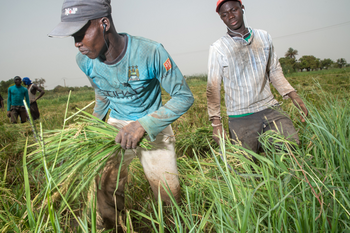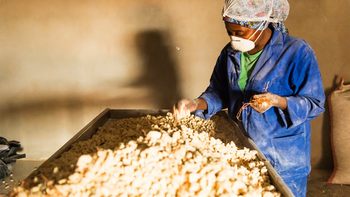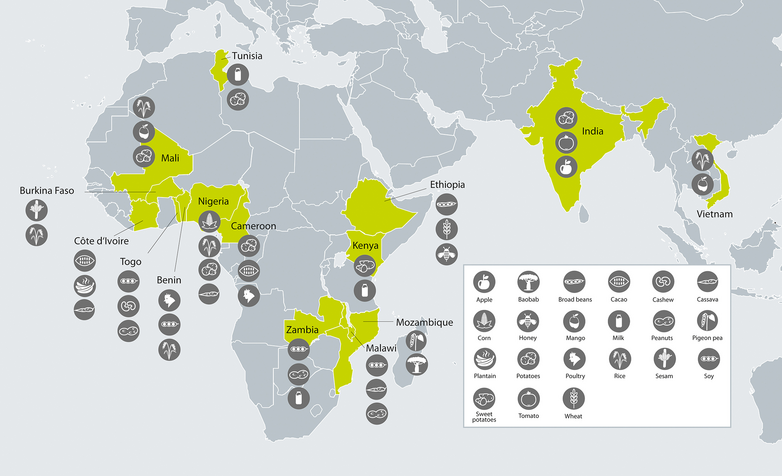Green Innovation Centres for the agriculture and food sector
Project description
Title: Green Innovation Centres for the Agriculture and Food Sector (GIC)
Commissioned by: German Federal Ministry for Economic Cooperation and Development (BMZ)
Co-funded by: European Union (EU), Swiss Agency for Development and Cooperation (SDC
Country: Benin, Burkina Faso, Cameroon, Côte d’Ivoire, Ethiopia, Ghana, India, Kenya, Malawi, Mali, Mozambique, Nigeria, Togo, Tunisia, Viet Nam, Zambia
Lead executing agency: Different in each country
Overall term: 2014 to 2026

Context
More and more people are going hungry, most recently primarily fuelled by climate change, conflict and the COVID-19 pandemic. Most of them are smallholder farmers in Africa and South Asia. They live in poverty and their meagre harvests are not enough for them to feed their own families and to guarantee a balanced diet. In addition, much of the food is lost between the field and the plate, as storage, processing and marketing are not coordinated. The problem is further compounded by a rapidly growing global population. Only if there is a massive increase in production will there be enough food for all people to be able to feed themselves in the future.

Objective
Innovations in the agriculture and food sector help increase smallholder income, boost employment and improve regional food supply in selected rural target regions.
Approach
The Green Innovation Centres were established as a network in 14 countries in Africa, and in India and Viet Nam. 15 Innovation Centres are currently working on the ground together with bilateral, regional and global projects being implemented under German development cooperation to achieve joint goals. In some countries such as Malawi, Mali and Nigeria, they are also cooperating on the basis of combined financing arrangements with the European Union (EU), and in Benin with the Swiss Agency for Development and Cooperation (SDC).
The focus of the work is on smallholdings in 21 selected value chains. These farms are supported primarily through the provision of advisory services, educational and training courses with the goal of enabling them to use input-based, technical, knowledge-based and organisational innovations to improve their productivity, income and climate resilience in the long term. This will also create new jobs in the area of food processing, ensuring that a greater portion of the added value from agricultural production remains in the countries, especially in rural areas. The new employment opportunities will benefit young people and women, in particular.
At global and at local level, the project cooperates with over 150 partner organisations from civil society, producer associations, academia, research institutions and the private sector.
Last update: Februar 2022
